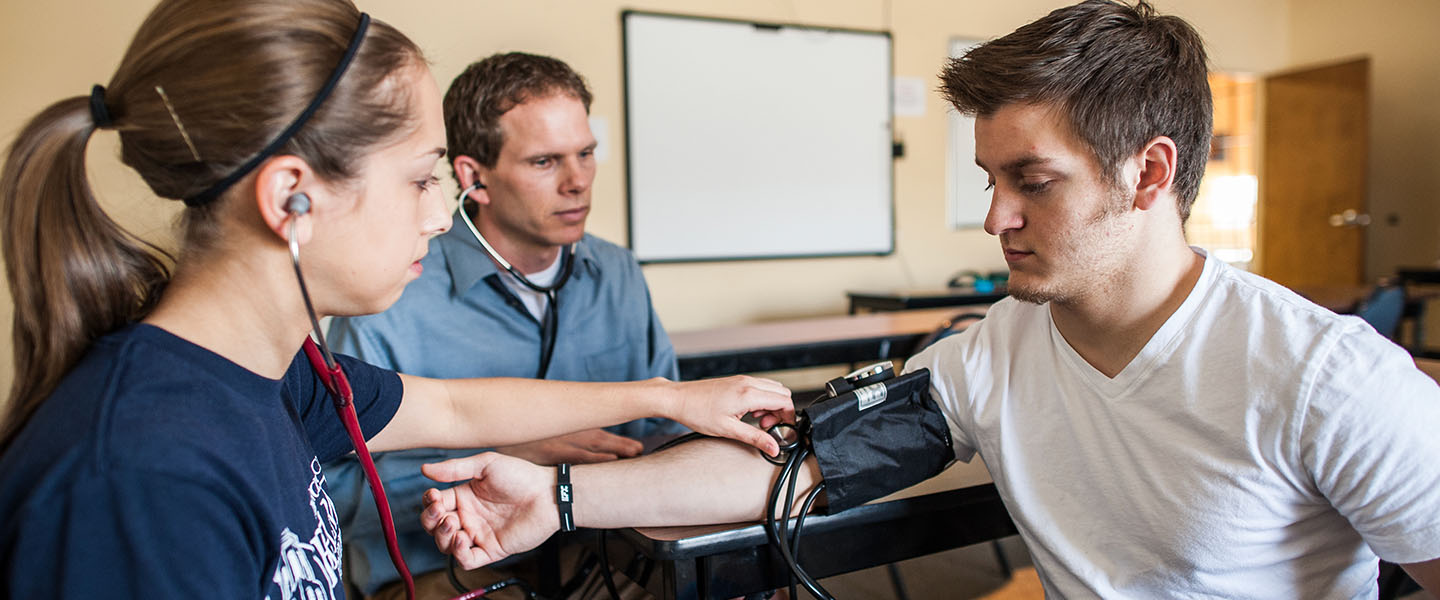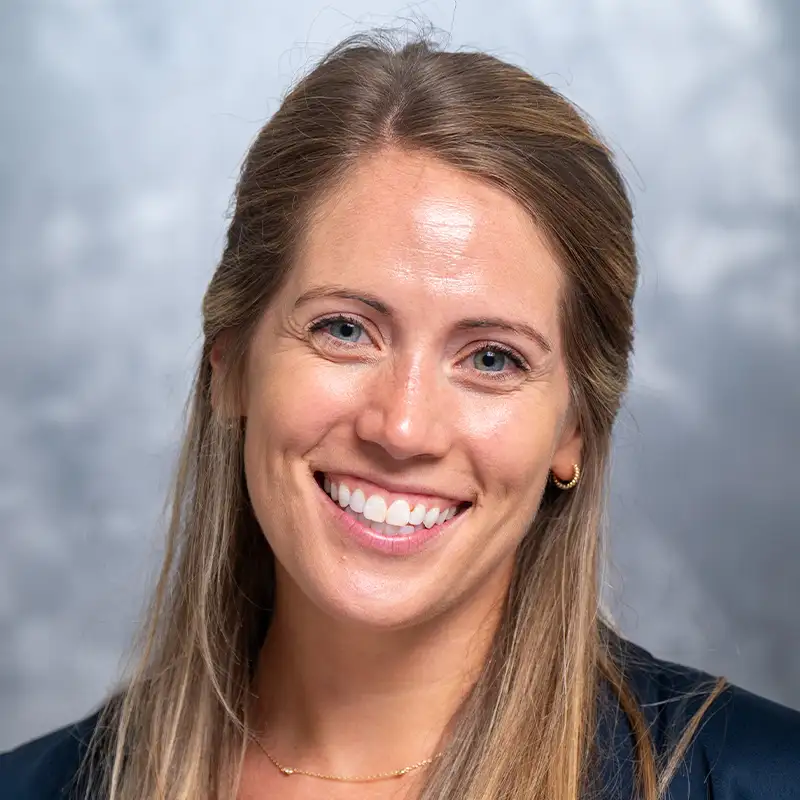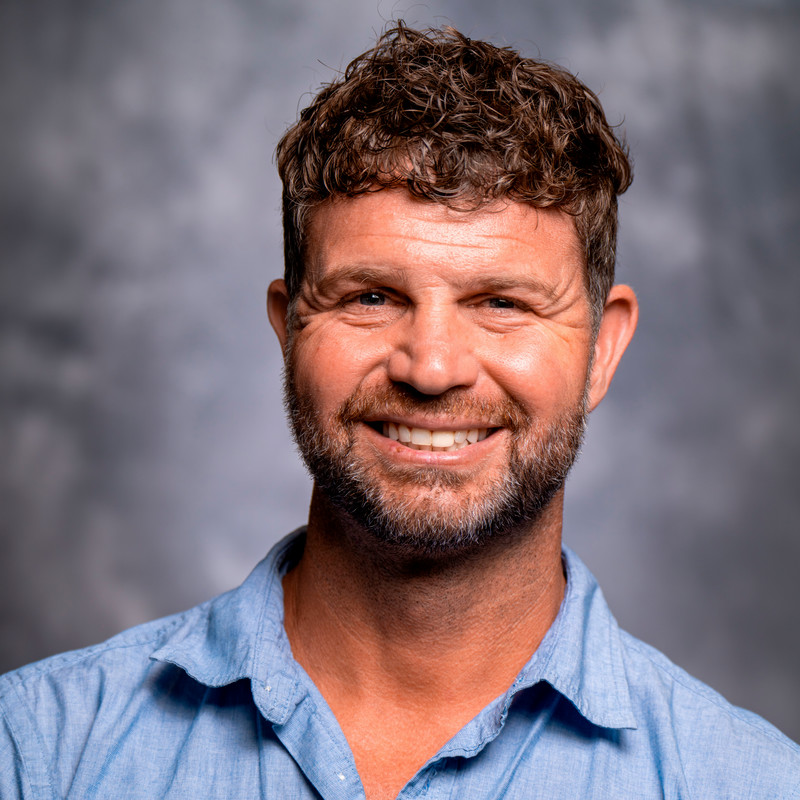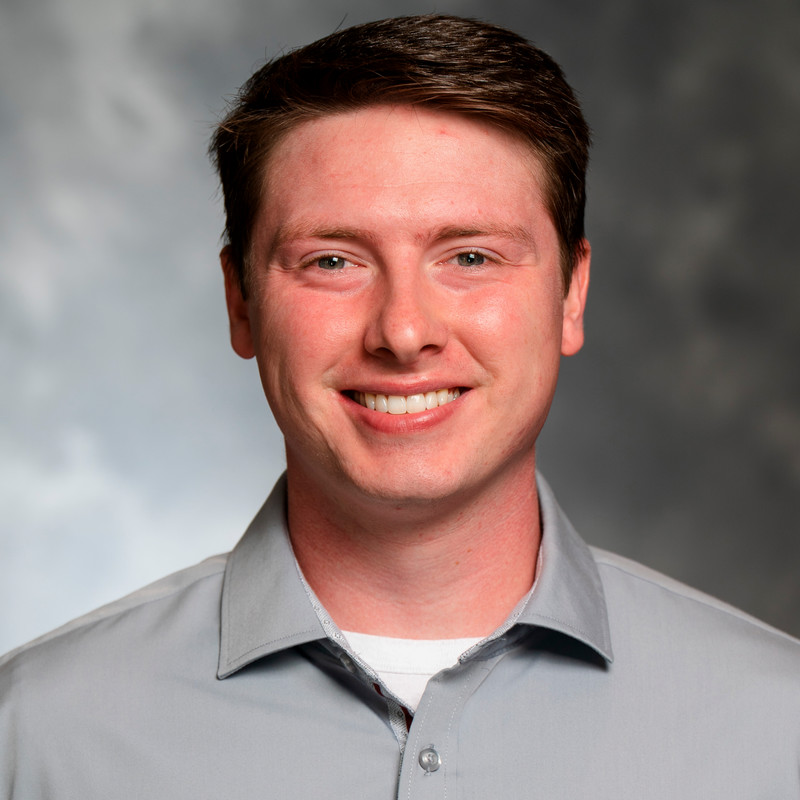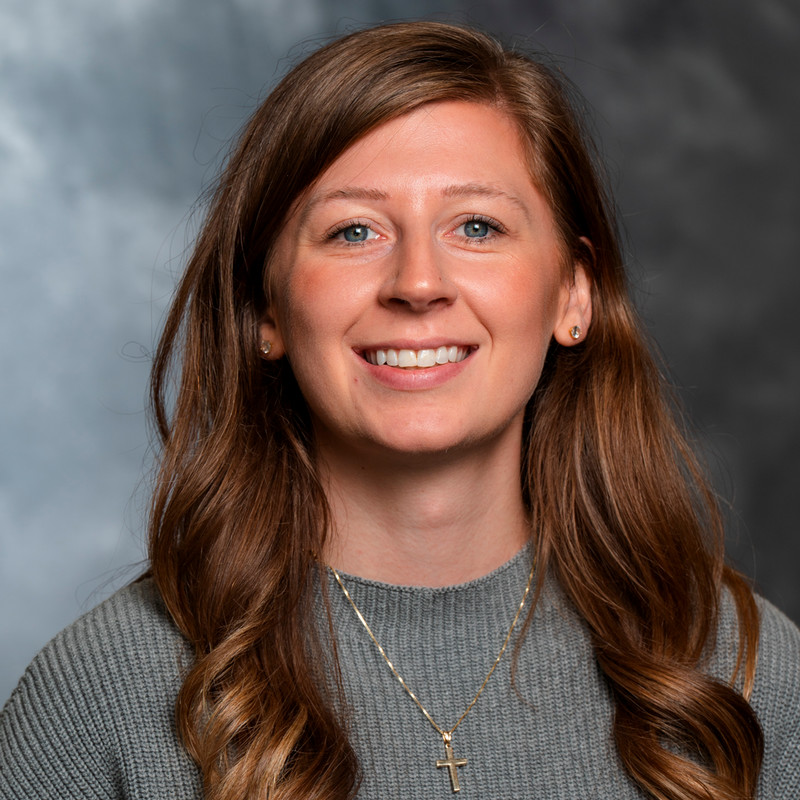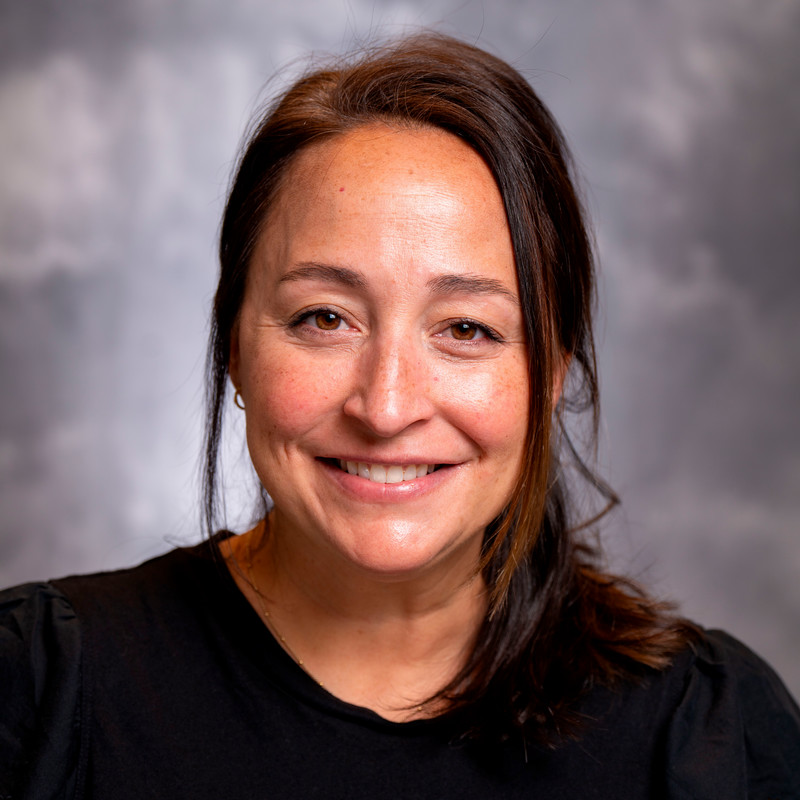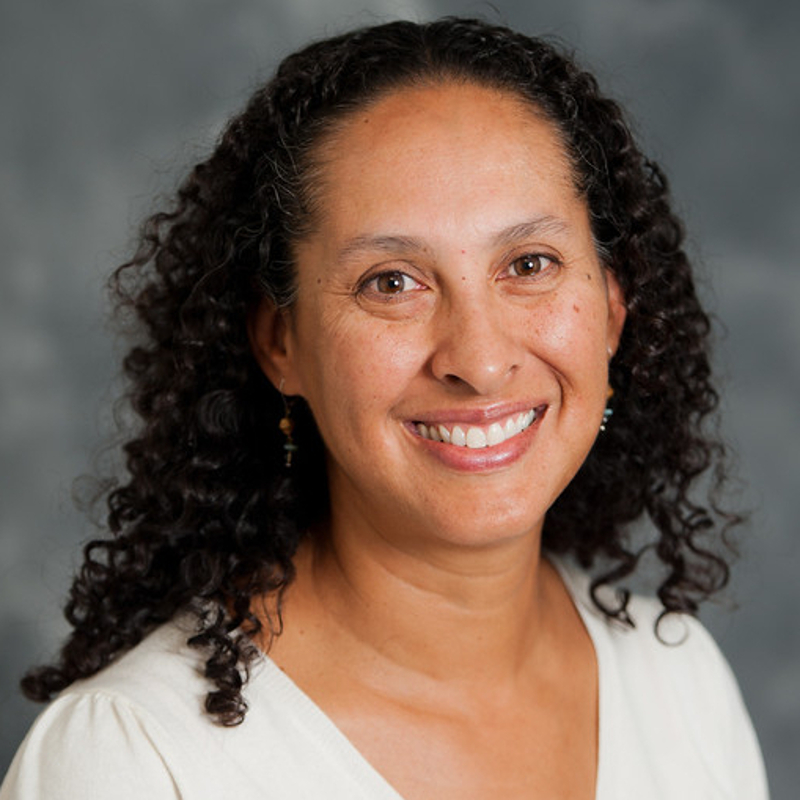Why Choose the Accelerated 3+3 Exercise Science Pathway at Belmont?
Fast-track your career path toward a doctoral degree in occupational or physical therapy. With hands-on opportunities for services, you’ll find countless opportunities to learn necessary skills while getting involved in the community.
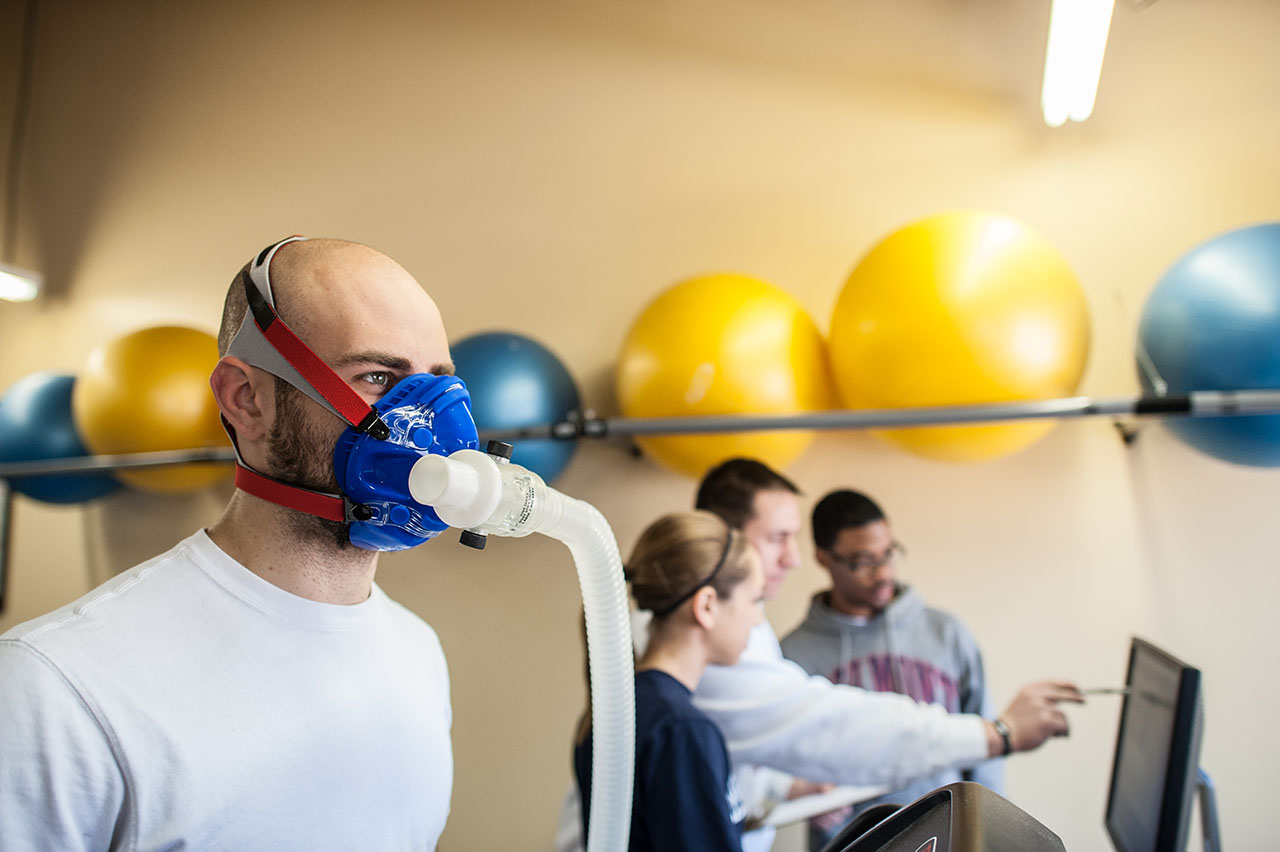
Preferred Doctoral Admission
Unlike traditional Exercise Science programs, our 3+3 pathway offers preferred admission to eligible students with the OTD or DPT gradaute programs (upon meeting all benchmarks and admissions requirements).
Time and Cost Savings
Complete both your bachelor's and doctoral degrees in just 6 years instead of 7, saving significant time and tuition costs while accelerating your entry into the healthcare field.
Interprofessional Collaboration
Begin collaborative learning with graduate students earlier in your academic journey. Housed within a college with graduate programs in physical therapy and occupational therapy, our students participate in exciting practice and research.
Specialized Clinical Experiences
Our 3+3 students receive priority placement in clinical settings specifically aligned with their OT or PT career goals, with abundant opportunities to pursue off-campus experiences in Nashville, a city known as the health care services capital of the U.S. (Forbes).
Optimized Curriculum Sequencing
Our carefully designed curriculum ensures you complete all prerequisite coursework for your chosen doctoral program within an accelerated three-year timeframe while maintaining academic excellence.
Request Information
Nashville, the Healthcare Capital
Belmont's location in Nashville offers unparalleled advantages for 3+3 therapy students. Our students benefit from clinical placements across this vast healthcare ecosystem. Major institutions like HCA Healthcare, Vanderbilt University Medical Center and Community Health Systems provide exceptional clinical learning environments where our graduates often find employment.
Beyond traditional healthcare settings, Nashville offers unique experiences through its professional sports teams — Tennessee Titans (NFL), Nashville Predators (NHL), Nashville SC (MLS) and Nashville Sounds (Triple-A baseball) — providing opportunities to observe sports medicine and rehabilitation at the highest levels. The Nashville Health Care Council's network fosters collaboration among healthcare companies, creating valuable networking opportunities, while specialized rehabilitation facilities offer clinical experiences aligned with various therapy specializations.
What You'll Learn
In addition to foundational Exercise Science knowledge, our 3+3 students receive specialized preparation for their doctoral studies:
- You will develop advanced understanding of professional therapy standards and practices before entering your doctoral program
- You will develop a thorough understanding of and appreciation for proper movement
- You will better understand how the body functions physiologically during exercise and how the body adapts to its demands
- You will gain early exposure to specialized clinical reasoning through tailored coursework aligned with your OT or PT career path
- You will develop a better understanding of the prevention and treatment of common exercise-related injuries
- You will build essential interprofessional communication skills through collaborative projects with current graduate students
Student & Alumni Testimonies
Program Details
Curriculum
Belmont University provides an opportunity for high achieving students majoring in Exercise Science to gain entry into one of the university’s doctoral programs in occupational therapy (OTD) or physical therapy (DPT) after only 3 years of undergraduate study.
Either the OTD or DPT program can be completed after three additional years for a total of 6 years (3+3) at Belmont University. Students will earn the BS in Exercise Science while completing their first year of the graduate program. It is strongly recommended that students indicate their intent to pursue the 3+3 program in their application for admission and begin the program of study at the start of their freshman year to be able to fulfill the accelerated pace of coursework. The 3+3 program is an accelerated option that requires meeting a number of rigorous requirements while completing major and prerequisite coursework, BELL Core, and WELL Core requirements within the first 3 years of undergraduate study to be eligible for consideration for admission to the graduate program.
Exercise Science Courses You'll Take
BIO 2230: Human Anatomy and Physiology I
A study of the cells and tissues as well as the skeletal, muscular, neural, and special sensory systems of the human body. Two hours lecture and 4 hours laboratory per week.
BIO 2240: Human Anatomy and Physiology II
A study of the endocrine, cardiovascular, pulmonary, gastrointestinal, renal, and reproductive systems of the human body. Three hours lecture and two hours laboratory per week.
EXS 1010: Foundations of Exercise Science
This course will enable students to discover the variety of topics, fields of study, and community opportunities as it pertains to exercise science, health and physical education, and sport. Students will be involved in assessing career paths through experiential learning.
EXS 2000: Kinesiology
This course will address the structure and function of the human body as it applies to movement, exercise, and sport.
EXS 3120: Laboratory Methods in Exercise Science
This course will introduce the rationale, procedures, and interpretation of health/fitness assessments with particular attention given to practical application appropriate for these assessments.
SPM 2350: Prevention and Treatment of Injury
Designed to help students recognize and control injury risk factors through an introduction to the public health approach to injury prevention. Additionally, it includes skills training for certification in CPR, AED, and first aid to provide immediate and temporary care in the event of an injury or sudden illness. There will be a fee for this course to cover certification cards.
EXS 3010: Exercise Physiology
This course deals with the functional physiological changes in the human body brought about by acute and chronic exercise. Energy systems of exercise, physiological support systems, and methods of physical training are addressed.
NTR 2230: Principles of Nutrition
The study of the nutritive value of foods, the effect of food on the overall health of the individual, and nutritional needs throughout the life span. The course will explore how the body fuels itself, and the effects of diet on performance, health and well-being.
EXS 4210: Exercise Prescription
This course will focus on the knowledge and skills necessary for the development and implementation of an exercise prescription according to guidelines established by the American College of Sports Medicine.
EXS 4500: Internship in Exercise Science
This course is designed to give students practical work experience in an Exercise Science related field. The internship will culminate with a final report summarizing the quality of the experience. Pass/Fail.
EXS 4015: Senior Capstone in Exercise Science
This is a senior level course that will focus on reading and understanding the research pertinent to Exercise Science, preparation for certification exams, job seeking skills and current events in Exercise Science.
STR 4110: Optimizing Human Performance
The purpose of this course is to provide practical knowledge to develop mobility, enhanced movement, posture, and recovery between training sessions, while improving human performance and quality of life.
BIO 2240: Human Anatomy and Physiology II
A study of the endocrine, cardiovascular, pulmonary, gastrointestinal, renal, and reproductive systems of the human body. Three hours lecture and two hours laboratory per week.
- In your first three years, you will complete 96 of the 128 credits required for a B.S. in Exercise Science, which includes 24 credits of specified prerequisite courses for entry into the OTD program.
- With cumulative and prerequisite GPAs above 3.0 at the end of your sophomore year, you may apply (through OTCAS) for Early Decision to the OTD program a year prior to your desired entry.
- The GRE requirement is waived for 3+3 applicants, but all other specified credentials are required. As a 3+3 applicant you must also demonstrate progress in developing professional behaviors for occupational therapy practice.
- If you have an overall and prerequisite GPA of at least 3.7 and present remaining application credentials which validate your preparedness for doctoral study, you are guaranteed admission to the OTD program.
- If your overall or prerequisite GPA is below 3.7, you will still be considered for Early Decision but on a competitive basis with other applicants. Your application could possibly be deferred until after fall semester grades are submitted.
- If admitted as a 3+3 candidate, you must complete all specified requirements, including the BELL Core and WELL Core, by the end of the spring semester of your third year.
- If not admitted to the OTD program as a 3+3 candidate, you may continue your bachelor’s degree but must add a minor to your Exercise Science major. You may re-apply to the OTD program during your senior year for entry after graduating with your B.S.
- Specific requirements for the 3+3 program are detailed in the Belmont University catalog. Questions should be directed to the Department Chair for Exercise Science.
-
Math Placement for the 3+3 Physical Therapy Pathway
To stay on track for the 3+3 Physical Therapy program, you’ll need to place into Precalculus. This means meeting one of the following minimum math benchmarks:
- ACT Math: 25 or higher
- SAT Math: 590 or higher
- RSAT Math: 590 or higher
- Belmont Math Placement Test: Score of 24 or higher
If you don’t meet the benchmark—no worries! You’ll just need to complete College Algebra before taking Precalculus.
What if I cannot meet the math requirements for 3+3 PT?
- If you are unable to meet the math requirement, the advised alternative is to switch into the 4-year Exercise Science major so that students have additional time in their course plan to excel in their prerequisites courses.
- In your first three years (including two summers), you will complete 110 of the 128 credits required for a B.S. in Exercise Science, which includes 41 credits of specified prerequisite courses for entry into the DPT program.
- With cumulative and prerequisite GPAs above 3.2 at the end of your sophomore year, you may apply (through PTCAS) for Early Decision to the DPT program a year prior to your desired entry.
- All specified application credentials are required, including results of the GRE examination. As a 3+3 applicant, one of the two required recommendations must be from your Exercise Science faculty advisor and the other from a licensed physical therapist.
- If you have an overall and prerequisite GPA of at least 3.7 and present remaining application credentials which validate your preparedness for doctoral study, you are guaranteed admission to the DPT program.
- If your overall or prerequisite GPA is below 3.7, you will still be considered for Early Decision but on a competitive basis with other applicants. Your application could possibly be deferred until after fall semester grades are submitted.
- If admitted as a 3+3 candidate, you must complete all specified requirements, including the BELL Core and WELL Core, by the end of the spring semester of your third year.
- If not admitted to the DPT program as a 3+3 candidate, you may continue your bachelor’s degree but must add a minor to your Exercise Science major. You may re-apply to the DPT program during your senior year for entry after graduating with your B.S.
- Specific requirements for the 3+3 program are detailed in the Belmont University catalog. Questions should be directed to the Department Chair for Exercise Science.
Our students benefit from specialized opportunities:
- Required 150-hour internship that can be tailored to PT or OT career goals
- Observation hours that simultaneously fulfill doctoral program application requirements
- Priority access to mentorship from graduate faculty and current doctoral students
- Early involvement in faculty research projects
- Designated professional development seminars
- Specialized advising from both undergraduate and graduate program faculty
We support our 3+3 students in securing internships that align with their specific doctoral track (OT or PT), with many finding full-time employment after graduation from these connections. Students consistently report their internship experiences as particularly valuable, as these placements validate the curriculum and help them apply their knowledge in real-world settings.
Internship partners for our 3+3 students include:
- STAR Physical Therapy (PT track)
- Vanderbilt University Medical Center Rehabilitation Services (PT & OT tracks)
- Chadwick's Fitness and Performance Training (PT track)
- D1 Sports Training (PT track)
- Vanderbilt Sports Medicine (PT track)
- Bridges for the Deaf and Hard of Hearing (OT track)
- Tennessee Orthopedic Alliance (PT track)
- Pi Beta Phi Elementary School (OT track)
- Results Physiotherapy (PT track)
- Vanderbilt Children's Hospital (PT & OT tracks)
- Rock Steady Boxing (PT & OT tracks)
- Tennessee Titans Rehabilitation Services (PT track)
- Nashville Predators Physical Therapy (PT track)
Career Opportunities
Our 3+3 program graduates enter the health care field with distinct advantages:
- Specialized Physical Therapist in pediatrics, sports medicine, neurology orthopedics or geriatrics
- Hospital-Based Physical Therapist in acute care, rehabilitation or outpatient settings
- Sports Physical Therapist working with collegiate or professional athletes
- Private Practice Owner developing specialized therapy services
- Research Physical Therapist contributing to evidence-based practice advancements
- Corporate/Industrial Physical Therapist developing workplace injury prevention programs
- Academic Faculty Member teaching in PT education programs
- Pediatric Occupational Therapist in schools, early intervention or sensory integration
- Hospital-Based Occupational Therapist in acute care, rehabilitation or mental health
- Specialized OT Practitioner in hand therapy, driving rehabilitation or assistive technology
- Home Health Occupational Therapist supporting aging-in-place initiatives
- Community-Based OT developing inclusive programming for diverse populations
- Academic Researcher advancing evidence-based interventions
- Healthcare Administrator managing rehabilitation departments
Salary and Job Outlook
Both occupational and physical therapy professions enjoy excellent job prospects and competitive salaries:
- The Bureau of Labor Statistics projects 14% growth for PT jobs and 11% growth for OT jobs through 2033, faster than the average for all occupations. (Source: U.S. Bureau of Labor Statistics)
- Median annual salaries for physical therapists are $101,020, and for occupational therapists, it’s $98,340. (USBLS)
- Middle Tennessee’s health care sector offers opportunities at over 900 healthcare companies (500 in Nashville) and 330,000 jobs contributing $68 billion to the local economy. (Source: Nashville Area Chamber of Commerce)
- Tennessee's cost of living index (90.5) ranks among the lowest in the U.S., allowing therapy professionals to enjoy higher purchasing power compared to other healthcare hubs. (Source: World Population Review, Cost of Living Index by State)
Learn from the Best
The Belmont 3+3 program benefits from the University's integrated College of Pharmacy & Health Sciences structure, creating natural collaborations between undergraduate and graduate programs.
Frequently Asked Questions
The academic requirements to stay in the 3+3 program and to maintain eligibility for guaranteed admission to the doctoral programs, are to maintain a cumulative GPA of 3.5 or higher, complete all prerequisite coursework with grades of B or better and fulfill observation hour requirements in their chosen field.
The 3+3 program differs from the traditional Exercise Science degree by featuring an accelerated course sequence that completes all undergraduate requirements in three years instead of four. It also offers guaranteed doctoral program admission for qualified students, includes specialized advising from both undergraduate and graduate faculty and provides early exposure to graduate-level coursework.
You need to officially apply to the doctoral program your junior year. While guaranteed admission is offered to qualified 3+3 students, a formal application to the doctoral program is submitted during your third undergraduate year. This application is streamlined for 3+3 students compared to external applicants.
Students who decide not to continue to the doctoral program can complete a fourth year of undergraduate studies to earn their Exercise Science BS degree and pursue other career options or graduate programs.
While possible, switching between OT and PT tracks after your first year may extend your time in the program, as each track has specific prerequisites. Early decisions are encouraged, but our advisors will work with you if your career goals change.
The program helps coordinate required observation hours for both OT and PT doctoral prerequisites through our extensive network of clinical affiliates in Nashville's health care community. These experiences are often integrated with coursework beginning in your second year.
Contact Us
College of Pharmacy & Health Sciences
Linda Arce
Senior Admissions Coordinator
615.460.5193
Email Linda
Schedule a Call

